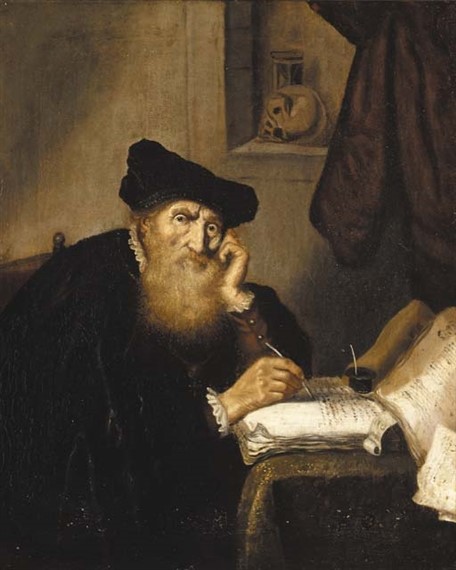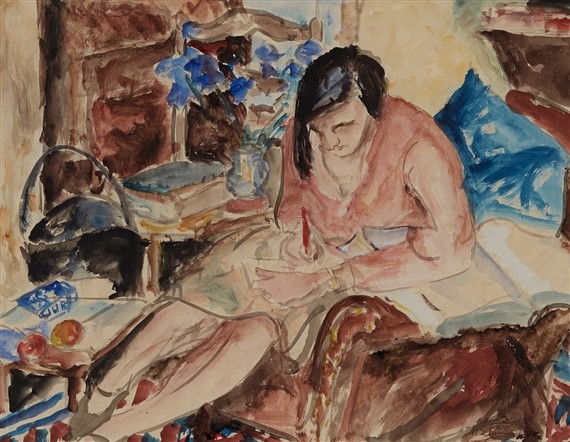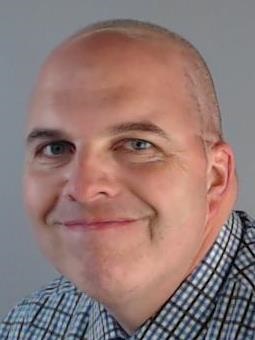As a librarian involved with editing (I am editor-in-chief of two journals: Theological Librarianship and The Christian Librarian both of which are open access) and publishing, I greatly appreciate the opportunity to respond to the dialog among editors and authors about publishing in religious studies from the EASR publishing panel.
I would like to comment on a few elements of this dialog. First, towards the beginning (6:06), the question was asked “How did you first get something published?” I was comforted to discover that many of them started with book reviews, as this is exactly how I started. I particularly appreciated one of the editors who would critique the syntax and grammar of my book reviews and then return them to me. At first, this was kind of difficult to swallow. I would think, “Who is this person to re-write my perfectly understandable review?” (There is a bit of sarcasm in that statement.) However, after my second or third review with this editor, I was encouraged to double-check my grammar and syntax before submitting for publication. The practice of double-checking my syntax and grammar has become a habit that developed early in my writing experience and one for which I am eternally grateful. If you cannot find an editor who will do that for you, find a peer who will tear your work apart. This editor and my peers have been invaluable assets in improving my writing.
Secondly, like many authors, I have submitted content for peer-review, and like many (if not all), I have been rejected. My initial responses to the reviewer’s comments tend to be defensive. However, I really took Michael Stausberg’s comment (16:50) to heart regarding taking reviewers’ comments seriously. After I get over my initial emotional response, I return to reviewers’ comments to strengthen my writing and argumentation, even if I don’t re-submit the work. Understand that even if reviewers disagree with your presuppositions and use that as a ground for not accepting your article, as a writer, you must address this fundamental concern. Perhaps you need to spell out your presuppositions or not assume that the reader is aware of the presuppositions to which you hold. Gregory D. Alles commented (19:42): “The process (speaking of peer-review) is there to ensure that your work is the best work possible for the sake of the journal and for your sake as well.” That statement speaks to what drives peer-review. Keeping this in mind when you get feedback from peer-review will help you utilize that feedback to strengthen your ability to communicate, write, and argue.
A third point that intrigued me was related to open access content. One of the questions asked related to open access (and I was a bit disappointed at the responses) was: “How do we meet the challenges of the 21st century? Does the general public read scholarly journals?” (31:20). A little bit later in the dialog, another question was asked about the differences in production between the global north and the global south (45:05). For the first question, answers were given related to discovery tools, and the fact that much content is available online (but behind a paywall – i.e. the article cannot be accessed without paying for it). While I do agree that discovery tools and having an abstract and title of an article online may assist somewhat in making the general public aware of what is being published, the fact that much online content is behind a paywall makes these resources useless. Granted, those with institutional affiliations may have institutional access to that web-site, enabling them to bypass the paywall; however, this does not account for the fact that much content that could be incredibly beneficial to individuals pursuing research is limited by paywalls (particularly in the global south). Internet availability could be an incredible gateway to making journal content available to the general public, encouraging readership of journal content outside of disciplinary silos and subsequently educating a broader readership. However, publishing in journals that are paywalled prohibits this interaction and only makes content available to institutions that can afford it.
Most would agree that equity is a large issue in the 21st century—some precisely because of their religious perspectives, including the research participants religious studies scholars may write about and who may not even be able to access information they contributed to the work. Unfortunately, paywalls prohibiting access to journal content counter much of the efforts made for equity in the realm of scholarship. At about 45 minutes into the presentation, the question is asked related to the differences in knowledge production between the global north and the global south: payment limits access. It was asked: “How would an individual who works in the global south make his/her content available to colleagues who work in the global south who do not have the resources to pay for that article? How can a balance be found between pursuing an academic career (which likely has a tenure track requiring publication in non-open access journals) and a passion to make discoveries open to colleagues in the global south?” These are very insightful questions. Changes need to be made so that content is available to everyone – and open access strives to do so.
Many tenure-track faculty members must publish in certain journals to earn tenure. How does one pursue open access publishing under these restrictions? First, seek open access journals as venues to pursue publication. If you are not sure of the open access journals in your discipline, look at the Directory of Open Access Journals. If none of these fit where you want to go and you need to publish in a particular journal that is not open access, work with the contract. Many journals are willing to grant you what is often-times termed a “green open-access” – that is, they give you the rights to post your content in an institutional repository. If you are not certain what this is or whether your institution has an institutional repository, contact your university librarian. They enjoy assisting in these areas and are major advocates of open access.
Open access does not fix everything, but it does assist in resolving the equity issue between the global north and south as well as assists in crumbling disciplinary silos. I am very proud to say that both of the journals that I edit are open-access. Frankly, I could not be editor-in-chief of these journals if they were not.

I would like to close my comment by simply affirming the responses given by the panel regarding their final advice. I appreciate and completely agree with a remark provided by Gregory D. Alles:
“Don’t get discouraged – I don’t know how you feel, but writing for me is a very personal thing, I sort of bleed myself onto the page in a way and if you get somebody who is criticizing you, that can be taken very personally, it can be a very discouraging experience. Don’t let that happen. You need to have a certain amount of self-confidence, everybody gets criticism, everybody gets rejected, and you can’t let that stop you.” (59:16)
I completely agree with this. Everybody gets criticism, everybody gets rejected, you cannot let that stop you. Writing is an incredibly personal endeavor. Equate the difficulties of peer-review with the pain from a good workout: everyone experiences it, but you are getting stronger. Build upon the critique and comments reviewers offer, strengthen your paper, strengthen your argument, and then re-submit. The intent of reviewers is to strengthen your argument, strengthen your essay, and strengthen your thinking.



